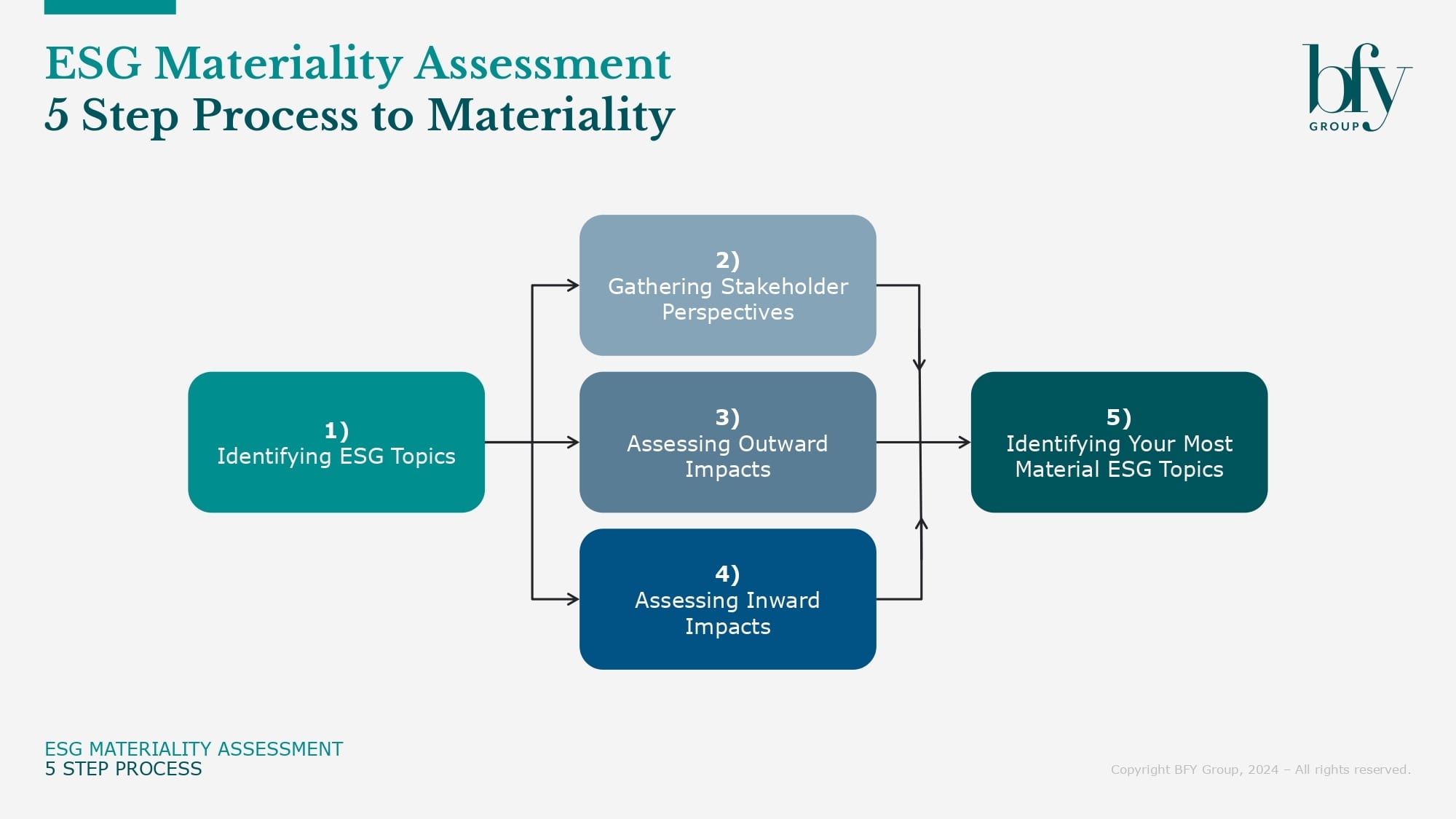ESG is simply about being a good business, responsible employer, and taking ownership for your environmental and societal impact, whilst being commercially sustainable.
Investors are looking not just for companies reporting ESG metrics, but also those targeting meaningful and achievable ESG goals, with a specific plan of action to achieve them.
To be purposeful, ESG needs to be aligned with business strategy and values, leading to clear tangible outcomes.
An ESG materiality assessment is used to identify and prioritise ESG issues that are most significant to businesses and stakeholders, creating the path for meaningful impact that attracts investment.
In this blog, we break down the elements of an effective ESG materiality assessment, and how it can be applied to bring value creation to life for businesses.
Materiality is unique to every business
Not all aspects of ESG are a priority for every company. A successful strategy starts with a clear understanding of what ESG challenges they should be solving first.
Material issues are those that:
- Affect your future performance as a business
- Impact the customer experience
- Influence your ability to attract or retain staff/suppliers
- Put you at risk of violating regulatory, ethical or legal statutes
“Impact” refers to both positive and negative impacts. Don’t just focus solely on the ethical and legal risks, potential losses, or other potential negative outcomes. You also want to factor in the opportunities that are uncovered, such as attracting the best talent, because you offer enhanced benefits and clear career progression routes, or offering value added services, which enable price increases and customer growth.
A materiality assessment should be the first step in every ESG journey
A materiality assessment should be the foundation of your ESG strategy – without this, companies often find they spend time on ad-hoc efforts, lacking focus on priorities that have a meaningful impact on the business.
When assessing which ESG topics are material to your business, the following should be considered:
- Stakeholder Perspectives: the views and needs of your key stakeholders – especially employees, investors, customers, and your community
- Outward Impacts: The markets you operate in and changes that may occur, for example changes in regulation
- Inward Impacts: Which ESG factors will contribute or hinder the achievement of your future business strategy and financial goals

Alongside this, integrating a maturity assessment that considers where you are on your ESG journey against your peers is a useful way to gather information on industry challenges, opportunities, and best practice relating to ESG.
By undertaking these initial steps, you should be able to gain a good understanding of the relative materiality of ESG topics in relation to your business, external environment, and stakeholders.
This will allow you to define priorities for action and develop a roadmap for focused activity, with clearly defined projects and metrics that can be tracked to demonstrate contribution towards business, environmental and societal goals.
It’s important to focus on the topics that really matter in the context of your business, move the needle in these areas, and build on early wins to communicate success and expand the scope.
BFY’s ESG Due Diligence Audit and Materiality Framework can help leaders better understand ESG, and its role in driving real value within their business. This includes the identification of potential risks and opportunities for upside, with supporting recommendations from our experts.
Our team recently supported a B2B Utilities client, developing their ESG strategy to focus on attracting investment through practical action, as shown here. We deployed our materiality assessment, alongside peer benchmarking, to highlight key risks to ESG progress and recommendations for future value creation.
It's been refreshing to work with a consultancy that not only has taken the time to really understand our business but has also provided specific insights and actionable recommendations that will really move us forward.
Chief Executive Officer
If you'd like to know more about our ESG Due Diligence offering, and how it can support your ESG strategy, contact Angela Tooley.
Ian Barker
Managing Partner
Ian shapes the BFY vision and inspires our team to bring it to life, while remaining central to complex client engagements in Strategy, Commercial, and Operations.
View Profile

